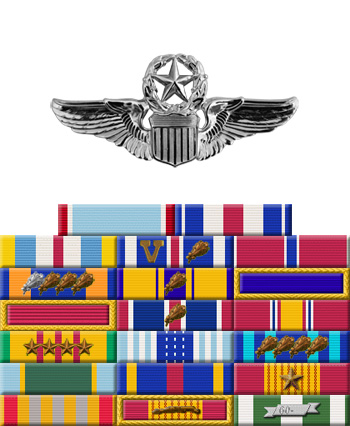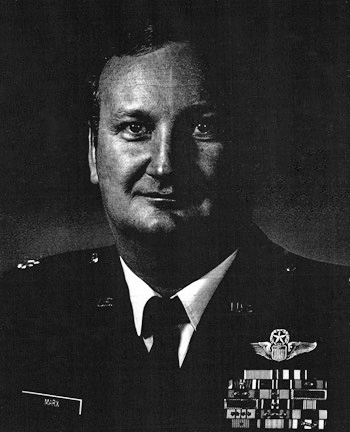
|
Donald L. Marx |
 |
|||
| Rank, Service | ||||
Lieutenant Colonel O-5, U.S. Air Force |
||||
| Veteran of: | ||||
|
||||
| Tribute: | ||||
Don Marx was born on January 30, 1942, in Gary, Indiana. He was commissioned through the Air Force ROTC program on August 12, 1964, and went on active duty beginning November 13, 1964. Lt Marx completed Undergraduate Pilot Training and was awarded his pilot wings at Vance AFB, Oklahoma, in January 1966, and then completed F-101B Voodoo interceptor training at Perrin AFB, Texas, in June 1966. His first assignment was as an F-101 pilot with the 98th Fighter Interceptor Squadron at Suffolk County AFB, New York, from July 1966 to April 1968, followed by F-4 Phantom II upgrade training and Forward Air Controller training from April to October 1968. Capt Marx next deployed to Southeast Asia, where he served as an O-2 Milirole Forward Air Controller for the 4th Infantry Division while assigned to the 21st Tactical Air Support Squadron at Nha Trang AB, Pleiku AB, An Khe AB, and Cam Ranh Bay AB, South Vietnam, from October 1968 to November 1969. His next assignment was as an instructor pilot with the 3645th Pilot Training Squadron at Laughlin AFB, Texas, from November 1969 to March 1971, and then with the 3646th Pilot Training Wing at Laughlin from March 1971 to July 1972. He served on the staff of Headquarters Air Training Command at Randolph AFB, Texas, from July 1972 to January 1974, and then completed U.S. Air Force Test Pilot School at Edwards AFB, California in January 1975. Major Marx served as a flight test officer with the 475th Test Squadron at Tyndall AFB, Florida, from January 1975 to August 1977, and served in various other assignments before retiring from the U.S. Air Force on December 1, 1984. |
||||
|
||||

